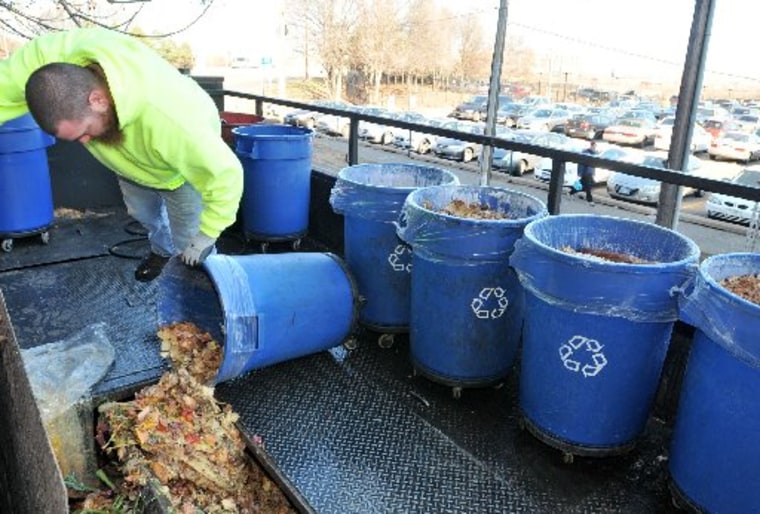Did you know that the US Government has a list of New Year’s Resolutions? You can read them all here, they range from the Medicare cost-curve bending usual suspects—eat better, drink less alcohol, quit smoking, to professional aspirations—get a better job, save money, manage debt.
Only two of the resolutions are altruistic, “Reduce, Reuse, and Recycle,” and “Volunteer to Help Others.” Anyone who has tried it knows that volunteering can be a lot of fun: You get out of your routine, meet new people, maybe even work outdoors or in a new and exciting neighborhood. Outreach is an inherently social activity and who doesn't like to socialize?
Recycling, on the other hand, is joylessly performed like a religious rite in the privacy of one’s own home. It’s easy to get overwhelmed when I think about having to sort cardboard, plastics, three different colors of glass and the nagging guilt that I don’t have the dedication to brave the mechanics of composting in my one- room semi-legal Chinatown apartment. I know that it is good for the planet, but no matter how many body-painted or macramé bikini-clad girls I may have had crushes on, there’s just no making recycling sexy, so let’s at least make it pay.
Currently only 11 US States (all varying shades of blue) offer any monetary remuneration for recycling containers, each having enacted a Bottle Bill. Oregon first introduced America to Bottle Deposit legislation in 1972 with its “Bottle Bill,” adding a 5 cent surcharge to the sale of single use beverage containers refundable upon return of the item to a redemption center, often the original point of sale. Two years after The Beaver State blazed this green statutory trail, there was an 83% drop in beverage container litter.
Despite the clear success of the bill in reducing waste, the rest of the country has been cool to this internationally popular, market-based approach recycling. It took 11 years for Massachusetts to become the 10th state to enact similar legislation, and then 22 years for Hawaii to pass its own Bottle Bill in 2005.
While some states have amended their bottle bills to include originally non-refundable items—most importantly, water bottles—only one, California, has raised the dollar amount of the bottle deposit since enacting the legislation. This practical oversight means that the five cent incentive from 1972 is expected to perform the same motivational task 40 years later. Too bad the value of a nickel in 1972 has risen with inflation to total 28 cents in today’s economy.
Recently, the so-called “Fiscal Cliff” negotiations have drummed up a lot of talk about ‘Chained CPI,’ a fancy way of saying ‘adjusting for inflation’ to limit spending on popular government programs like Social Security and Medicare.
If the environment and pollution are anywhere near as important to the average American as the marginal tax rates of the super-rich (and I suspect that they just might be) then beverage deposits should also increase in regular, predictable intervals to preserve this important practice, and fight back against a strong record of beverage-industry lobbying against the spread of bottle bills to the rest of the country. In fact, maybe it’s time for Americans to return the favor and start writing New Year’s Resolutions for their government as well.
